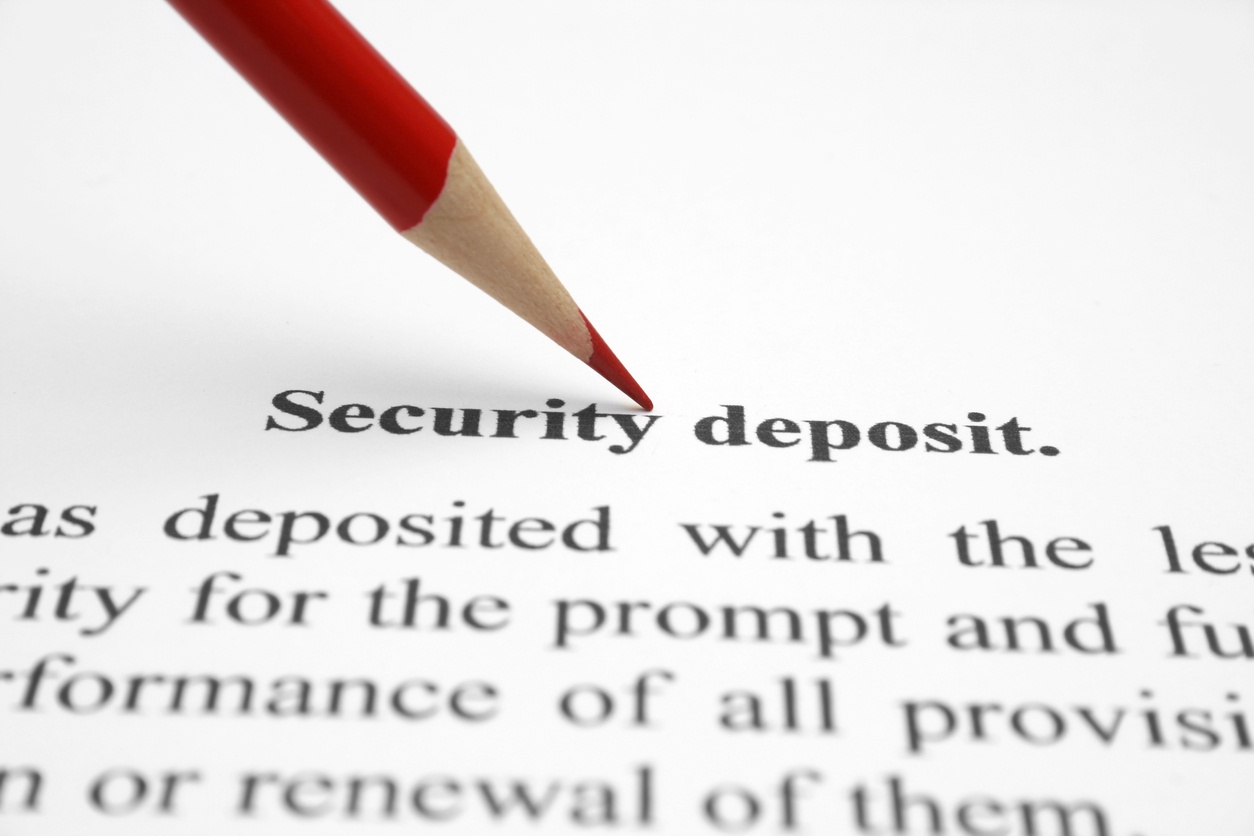
In San Diego County, a security deposit is a fee, deposit or charge imposed at the beginning of a tenancy that is intended to reimburse the landlord for damages, cleaning and defaults on rent as provided under California Civil Code § 1950.5. This fee is built into the tenant/landlord relationship to ease the risk a property owner takes in allowing the tenant to have largely unmonitored access and use of the rental property.
Who Owns the Security Deposit?
A security deposit is money held in trust by the property owner or their assignee on behalf of the tenant. Although the landlord has physical possession of the funds, they belong to the tenant until the lease ends. Because the landlord does not have dominion over these funds and is required to pay them back upon request, they are accounted for as a liability.
What Can a Security Deposit be Used for in San Diego County?
The rules governing security deposits can vary by county and by state. In San Diego County a security deposit can be used to repair unreasonable damages done to the property, to pay for cleaning charges, to cover rent in the event of default and, if agreed upon by both parties, they may also be used to cover the final month's rent.
Repair and Replacement of Property
Unreasonable damages are damages that are beyond reasonable wear and tear. This includes, but is not limited to, damages caused by willful or negligent action such as:
- Badly damaged flooring
- Holes in the walls
- Damaged appliances
- Broken doors
- Missing light fixtures
It does NOT include expenditures that are not caused by tenant but are a natural part of the aging process or a risk associated with property ownership, such as the replacement of aging carpeting, repainting undamaged walls, replacing gutters or remediation of fire damage for which the tenant nor their guests were found to be at fault.
Paying for Cleaning Charges
As the owner of the physical asset, you are leasing your property with the understanding that it will be returned to you in the same condition, less reasonable wear and tear, as it was given to the tenant. This understanding extends to the physical state of cleanliness as well as damage. Security deposits may be used to purchase professional cleaning services or to fund employees to clean the premises after an old tenant has moved out and before a new tenant can move in.
Covering Unpaid Rents
At the end of tenancy, if there is any amount of rent outstanding, the property owner may use all or part of the security deposit to cover the amount owed before deductions for repair, replacement or cleaning are made.
Paying Last Month's Rent
If specified in the lease document, the security deposit may also be used to fund the final month's rent. This is usually done to ease the move-out process for both parties. If there has been no such stipulation and the landlord does not agree to make final payment from the deposit than the tenant may not require it.
General Guidelines
- In San Diego County, a security deposit for an unfinished residential rental property may be up to two times the amount of a tenants regular monthly rent. If the property is furnished then up to three times the amount of a regular months rent may be requested.
- Under no circumstance may these funds be declared nonrefundable in the absence of damages or unpaid rents due to the property owner.
- All funds must be returned or accounted for within 21 days of the tenants move out date.
- If you sell the rental property the security deposit must be assigned and paid to the new owner.
Security deposits collected from tenants and the final dispensation of funds after a move out are one of the most common reasons for litigation in the tenant/landlord relationship. Following the laws and guidelines that govern their collection and use plays an important role in managing your tenants and maintaining your rental properties.
